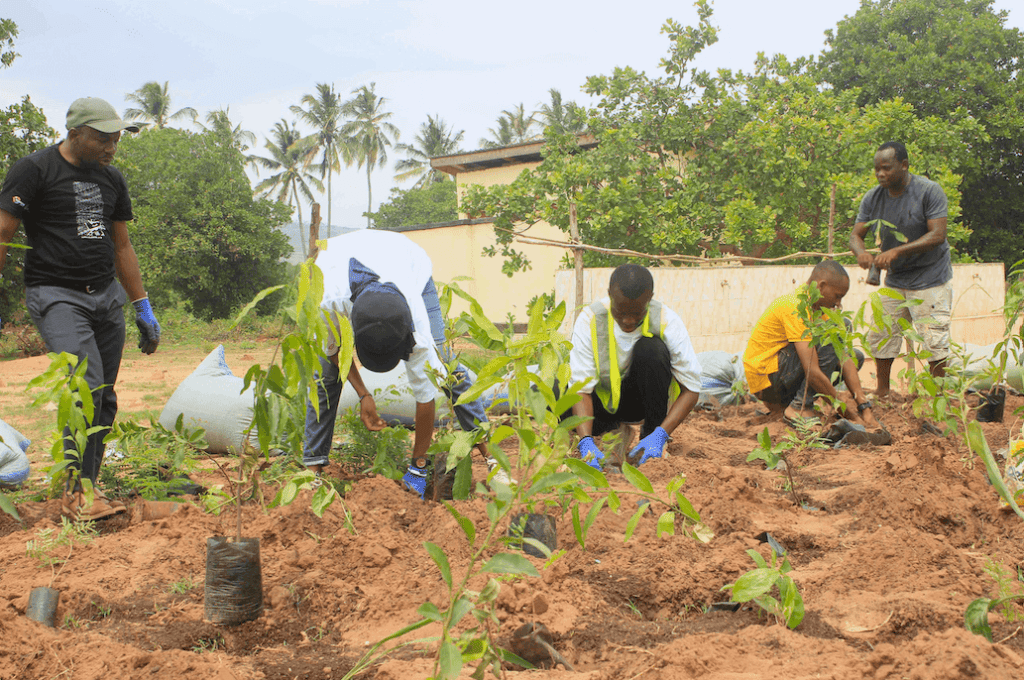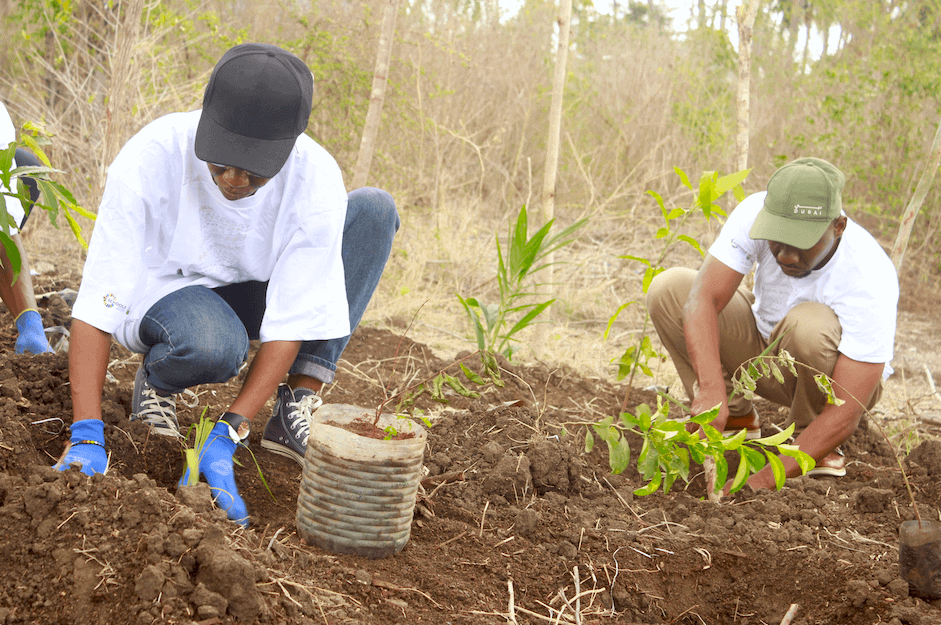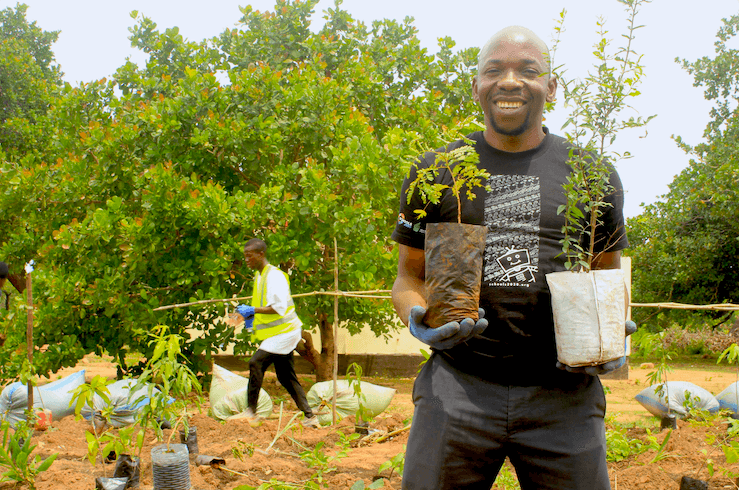This month we spoke with Shaibu Mandova, National Coordinator for Schools2030 in Tanzania and Bakari Liwowa, a highschool geography teacher from Tanzania. We wanted to find out how Schools2030 helped them to establish their innovation and what role innovation plays in the future of education in Tanzania.
My work ranges from coordinating and organising teacher workshops, to helping teachers to assess students, to supporting teachers with their innovations. I worked closely with Bakari in the development of MicroForest, providing support and guidance
Shaibu

Shaibu (a former teacher) has worked closely with Bakari to help him develop his innovation – ‘Micro Forest’ – working with students to plant small-scale forests in schools. Both were drawn to working in education as a result of their own educational experiences, and their love for sharing their knowledge with others. And what keeps them in their professions? Seeing the increasing number of young people enrolling in schools in Tanzania, and the passion they have for learning.
Educators in Tanzania regularly share their classroom practices with one another through WhatsApp groups, using video and photos to visually share how their innovation works in practice. We were amazed to hear how passionate educators in Tanzania are for improving their educational practices and the value they place on sharing their work. However, as much as WhatsApp provides an ideal platform for educators in Tanzania to share their work, it means that the work that they are doing is not being shared with a wider audience who could benefit from these innovative practices. There are also limitations to WhatsApp as a place to share practices in a structured way, with pedagogical nuances, and the fact that it is not searchable in a way that the content provider can control.
Our WhatsApp groups are very active. Teachers share innovations through videos, and how they test and assess their work. Every teacher has time to share on WhatsApp
Shaibu
Encouraged by Shaibu and his work with Schools2030, Bakari’s decision to develop a micro forest with his students, also demonstrates his passion for climate action. A micro forest is a small planted forest that encourages biodiversity and offsets carbon emissions. Students learn the practical skills and scientific knowledge of creating and maintaining a micro forest, as well as learning about the medicinal qualities of the plants they are growing, developing business skills by selling the produce they have grown to the local community and developing a deeper understanding about climate change and the world around them. Bakari believes that this hands-on approach to learning provides students with a variety of skills that they would not otherwise gain in a traditional classroom setting.

Bakari has now posted ‘Micro Forest’ on Faved, to help share the work he is doing with fellow educators around the world, in the hope that they also share his passion for climate education and introduce micro forests in their own settings. They then have the option to share feedback on how they think it went. Bakari found the whole process of posting his innovation easy, and he remarked how he enjoys using the platform to find new ideas that he can incorporate into his classroom practice. In the future, he looks forward to receiving feedback on his innovation and perhaps learning from the ways in which other educators develop his innovation to work in their context.
We want to encourage teachers to use the platform [Faved]. We want to be able to read and look at innovations from other countries , so we are asking other countries to share theirs [innovations].
Shaibu
When asked what their hopes are for the future of education, Shaibu and Bakari both insisted that more teachers globally need to be encouraged to share their innovative classroom practices with one another, and they believe Faved is the perfect platform to do this. They look forward to reading about more innovations from around the world, and providing feedback on how they have found trialling them in their own settings.
We also look forward to following Shaibu and Bakari’s work and the ways in which educators globally will incorporate what they learn from Micro Forest into their own classrooms!
This article was first published on Faved.org. Sign up for free today to explore ‘micro forest’ and other innovative classroom practices
